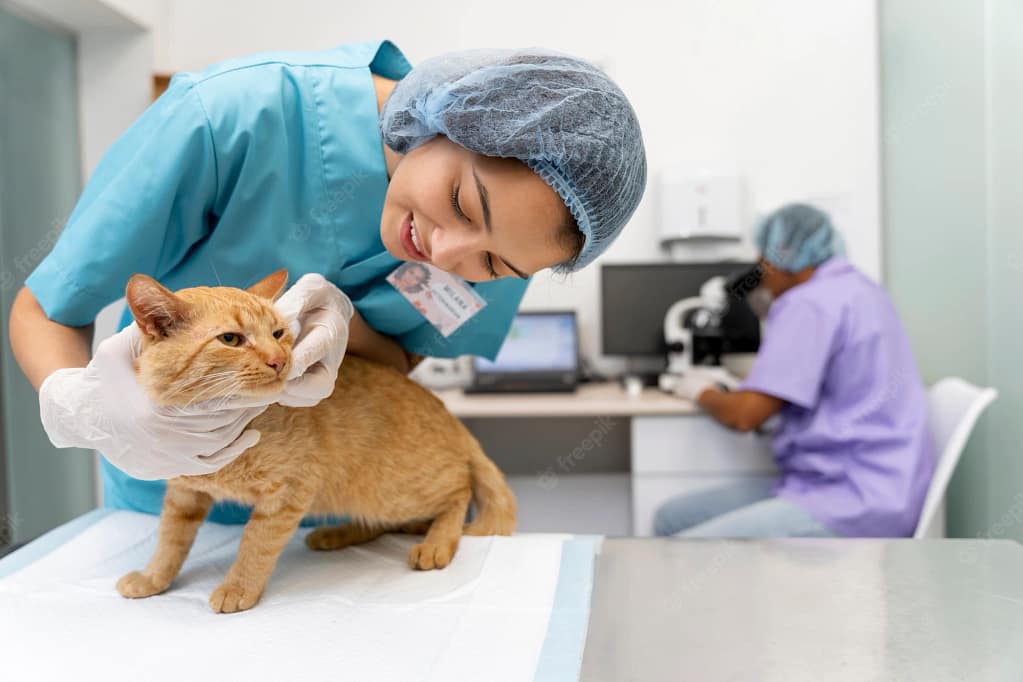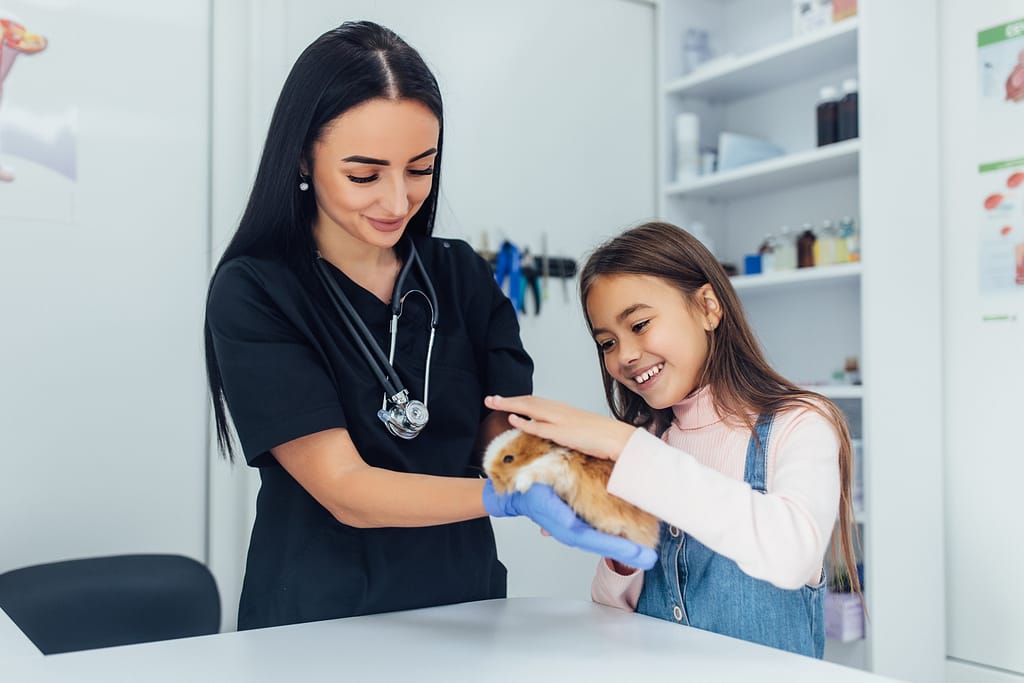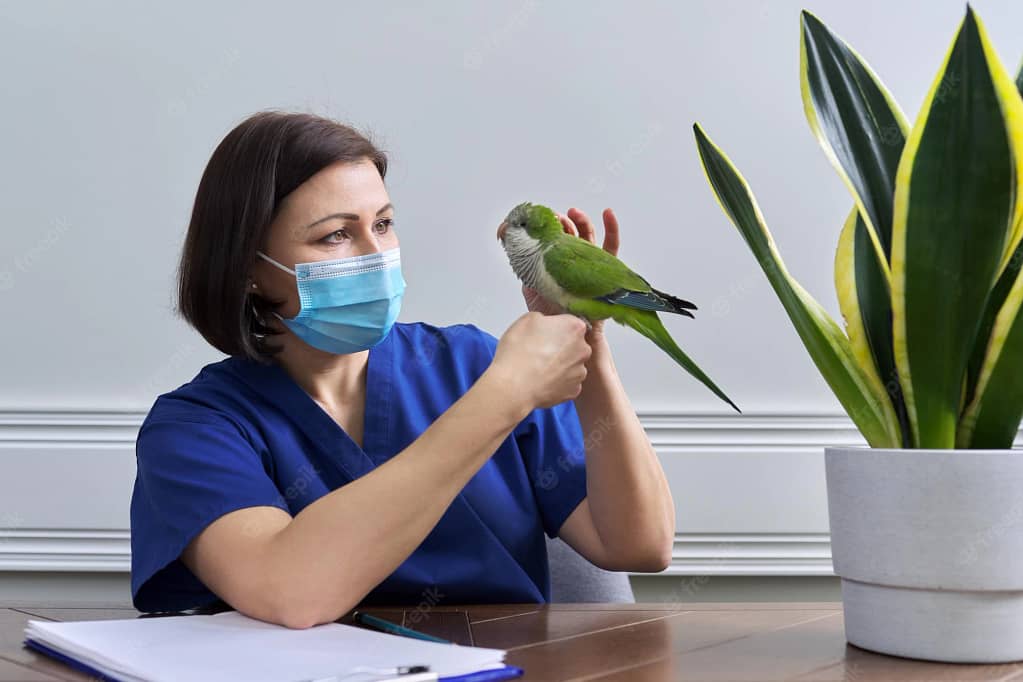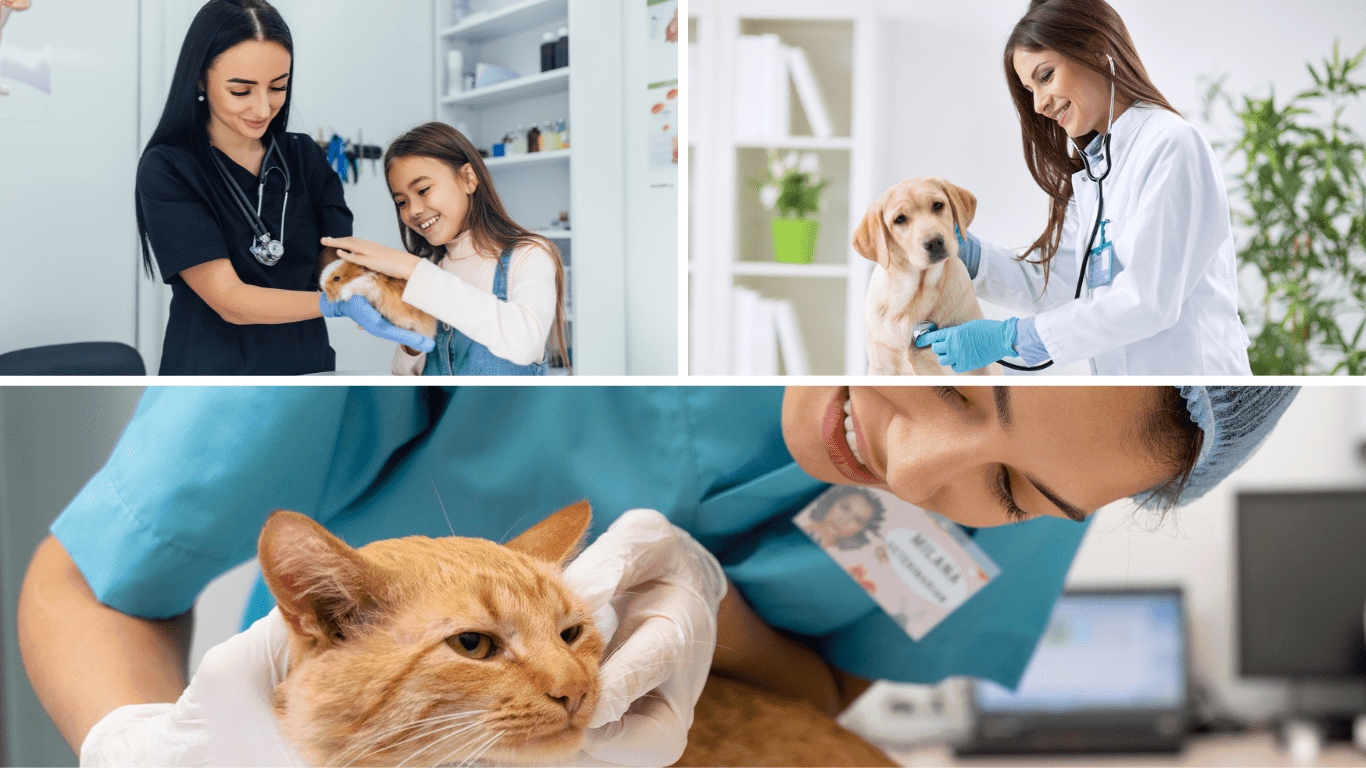This article contains information about how often you should take your pet to the vet (i.e. Dogs, Cats, hamsters, guinea pigs, a bird such as parrots)
All pets need regular checkups to remain healthy. However, some people are confused as to how often they should take their pets to the vet. People believe that pets are self-sufficient and do not require you to take them in for a checkup unless they show noticeable signs of illness. In reality, you should take your pet to the vet much more frequently.
We recommend that you take your pet to the vet more frequently. Please take a moment to read the article below.
Dogs

Puppy
Up to 1 Year Old: The first year of your dog’s life may be when you see his vet the most frequently, possibly monthly for the first half-year. Vaccinations are the primary reason for these visits. These begin when your dog is 6-8 weeks old. The recommended vaccinations begin with distemper and parvovirus vaccines. The DHPP (distemper, hepatitis, parainfluenza, and parvovirus) vaccination is due when your puppy is 10-12 weeks old. Another DHPP shot is required six weeks after the first rabies shot.
During these visits, your veterinarian will examine your dog and recommend flea and tick preventatives, as well as look for signs of heartworms. Your dog will be ready for spaying or neutering when he is 6-9 months old.
Adult
1 to 8 Years Old: You should still take your dog to the vet between the ages of one and eight years. If your dog is in good health, once a year may be enough.
Your dog will still require rabies and DHPP vaccine booster shots every 1-3 years. Dogs who live in areas where Lyme disease is common may benefit from this vaccine. During your visits, your vet can also recommend any dietary changes that may be required if your dog is overweight, as well as perform blood tests to rule out any potential problems.
Senior
Above 8: If your dog is healthy, you should see your vet about twice a year around the time he turns 8. Dogs’ teeth wear down as they age, so your veterinarian will continue to monitor their chewing. They’ll also check their blood work and consider changing their diet, perhaps changing to a calorie-reduced food.
While preventative vet care can be expensive, it will likely save you money in the long run if your pet stays healthy and avoids major procedures or illnesses.
Cats

Kitten
Up to 1 Year Old: If your cat is less than a year old, we recommend taking them to the vet once a month, with their first appointment taking place when they are about 8 weeks old. Kittens require many rounds of vaccines throughout their first year to protect them from common infectious diseases. Kittens should receive the Feline Leukemia vaccine as well as the FVRCP vaccine, which protects your cat from three extremely contagious and potentially fatal feline diseases: Feline Viral Rhinotracheitis (FHV-1), Feline Calicivirus (FCV), and Feline Panleukopenia (FPL).
This initial consultation will allow you to discuss future care plans with a professional veterinarian. If your cat is less than four months old, the vet may recommend monthly checkups until they are about five months old.
Adult
1 to 10 Years Old: Adult cats should be checked at least twice a year, or every six months. Dental cleanings, examinations, and immunizations are common components of checkups. Even if your cat lives indoors, it will require distemper and rabies vaccinations.
The veterinarian will discuss your cat’s diet, nutritional needs, and parasite protection with you.
Senior
Above 10 year: Diseases and injuries are more common in older pets, we recommend taking your senior cat to the vet every 6 months. All of the exams and suggestions stated above will be included in your senior cat’s twice-yearly wellness check-ups, along with a few more diagnostic tests to provide additional insight into your kitty’s overall health.
Blood tests and urinalysis are two diagnostic tests we suggest for your older cats to look for early indicators of diseases like renal disease or diabetes.
Hamsters

The wonderful advantage of owning an animal comes with the duty of caring for his health. As a result, hamsters must be examined by a veterinarian on a regular basis. Taking your hamster to the vet is only necessary if they become ill or injured. Even if you take the greatest possible care of your hamster, they can be injured or become ill. They may fall out of their cage, crash with something, or simply become ill.
If you’re not sure when to take your hamster to the vet, consider the following signs and symptoms:
Diarrhea, Weight loss, Fur falling out, Bloody poop or pee, Runny nose, Sleeping more than usual, Lack of interest in their food.
Parrots

You should absolutely take your parrot to the vet for a checkup at least once a year. You should take your parrot to the vet as soon as you get them from someone or somewhere else. There is no guarantee of their present health once you obtain them, therefore it is recommended to confirm that they are healthy.
If your parrot is acting strangely or looks to be sick, you should take them to the vet. Make sure you’re aware of what your bird normally does (how much they eat, poop, sleeps, and so on) so you can notice if anything changes. Be on the lookout for any symptoms that they may be ill.
Note: Please keep in mind that the information on this page is for educational purposes only and does not constitute medical advice for pets. Please schedule an appointment with your veterinarian for an accurate diagnosis of your pet’s condition.
Frequently asked Questions
How many times should I take my pet to vet?
Healthy adults dogs should undergo annual wellness examinations, but puppies and kittens, senior pets, and animals with underlying health issues should receive more frequent examinations.
How often should you take your cat to the vet?
It is recommended that you bring in a healthy adult cat once a year for an exam if they are between the ages of 1 and 10.
How often should you take your dog to the vet?
You should bring in a healthy adult dog once a year for an exam if they are between the ages of 1 and 10.

[…] Also read, How Often Should You Take Your Pet To The Vet? […]
Do you mind if I quote a couple of your articles as long as I provide credit and sources back to your website? My blog site is in the very same niche as yours and my users would certainly benefit from some of the information you present here. Please let me know if this is okay with you. Thanks!
ok
Reading your article helped me a lot and I agree with you. But I still have some doubts, can you clarify for me? I’ll keep an eye out for your answers.